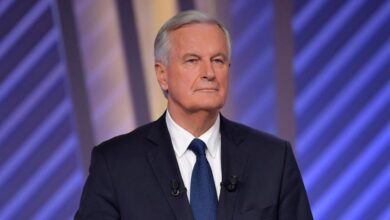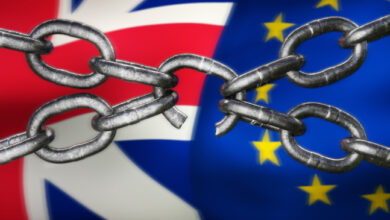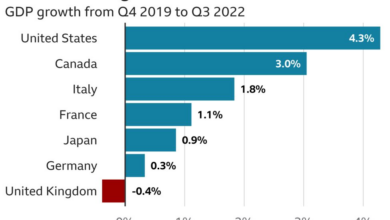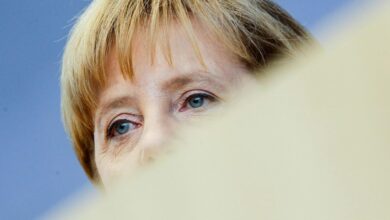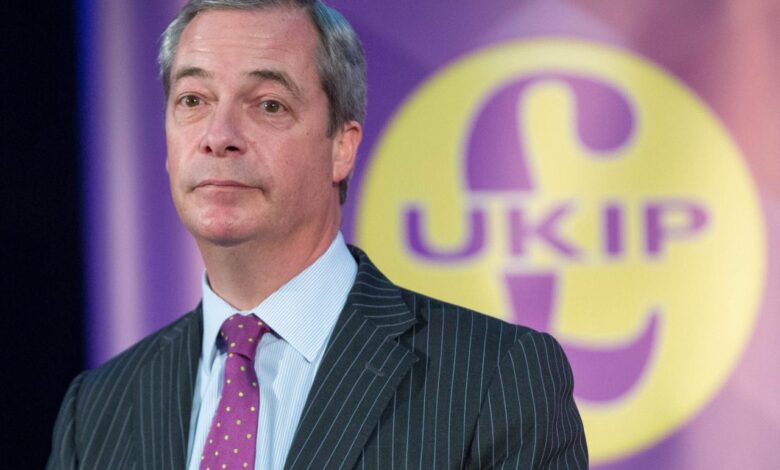
The Return of the Farage Ratchet
The Return of the Farage Ratchet: It’s a phrase that’s been echoing through political circles lately, and for good reason. This isn’t just about a single politician; it’s about a phenomenon – a dangerous cycle of populist rhetoric, divisive tactics, and the erosion of democratic norms. We’re diving deep into what makes this ratchet tick, exploring its historical roots, its mechanics, and its far-reaching consequences.
Get ready to unpack the complexities of a political force that continues to shape our world.
We’ll be examining how this “ratchet” effect works, looking at the specific mechanisms used to push political discourse further and further to the extremes. We’ll analyze its impact on public opinion, exploring how media coverage and demographic factors play a role. Then, we’ll venture into the global arena, comparing and contrasting the Farage ratchet with similar trends worldwide.
Finally, we’ll brainstorm potential strategies for mitigating its negative effects – a crucial task for anyone concerned about the future of healthy political debate.
Mechanisms and Effects of the Farage Ratchet

The “Farage Ratchet,” a term describing the seemingly irreversible shift towards populist and nationalist politics, operates through a complex interplay of social, political, and economic factors. It’s not a single, easily defined mechanism, but rather a series of reinforcing processes that lock in increasingly extreme positions.The core mechanism involves the exploitation of anxieties and grievances within a population, often fueled by economic insecurity and rapid social change.
Populist leaders, like Nigel Farage, capitalize on these sentiments, simplifying complex issues and presenting themselves as champions of the “common person” against an elite establishment. This narrative resonates with voters feeling left behind by globalization and political systems perceived as unresponsive to their needs. The ratchet effect arises because each success, however small, strengthens the populist narrative and emboldens further radicalization.
Key Players and Their Roles
Several key players contribute to the perpetuation of the Farage Ratchet. Populist leaders themselves are central, utilizing inflammatory rhetoric and divisive language to mobilize support. Media outlets, particularly those with a strong ideological bias, play a significant role by amplifying populist messages and downplaying criticism. Social media platforms further accelerate the spread of misinformation and conspiracy theories, creating echo chambers where extreme views are reinforced.
Finally, traditional political parties often struggle to effectively counter populist narratives, either by failing to address underlying grievances or by engaging in similar tactics, inadvertently normalizing extremism.
The return of the “Farage ratchet”—that unsettling feeling of populist resurgence—is definitely in the air. It’s a stark reminder that even seemingly entrenched power structures, like the one Brandon Johnson, Chicago’s leftist mayor, is currently grappling with, as evidenced by this article brandon johnson chicagos leftist mayor is struggling , can be unexpectedly vulnerable. This vulnerability highlights the unpredictable nature of political tides and the persistent threat of the Farage ratchet’s unsettling swing.
Short-Term and Long-Term Consequences
The short-term consequences of the Farage Ratchet often include increased political polarization, erosion of trust in institutions, and a rise in xenophobia and intolerance. We see examples of this in the immediate aftermath of Brexit, with increased division within the UK and strained relations with the European Union. Long-term consequences are potentially more severe, potentially including damage to democratic norms, the weakening of international cooperation, and the exacerbation of existing social and economic inequalities.
The rise of authoritarianism and a decline in social cohesion are also significant long-term risks.
The return of the Farage ratchet feels eerily familiar; a cynical manipulation of public anxieties. It’s a stark contrast to the global stage, where even a country like China, as highlighted in this insightful article mega polluter china believes it is a climate saviour , attempts to portray itself as a climate leader despite its massive carbon footprint.
This hypocrisy only underscores the urgency of confronting the Farage ratchet’s divisive tactics.
Hypothetical Scenario: Immigration Policy
Imagine a country facing rising unemployment and economic stagnation. A populist leader, employing the Farage Ratchet, frames immigration as the primary cause of these problems, despite economic data suggesting otherwise. This narrative resonates with a segment of the population facing economic hardship. The leader promises to drastically reduce immigration, appealing to nationalistic sentiments and exploiting anxieties about cultural change.
Initially, this policy gains popularity, further strengthening the leader’s position and allowing them to implement even more restrictive measures. Over time, this leads to a shortage of skilled labor, hindering economic growth, and fostering resentment towards immigrant communities, even those who contribute positively to society. The initial success in gaining political capital through anti-immigration rhetoric creates a situation where any attempt to moderate the policy is met with fierce resistance from the populist base, locking in place increasingly restrictive and damaging immigration laws.
This exemplifies the “ratchet” effect – a seemingly irreversible tightening of policies driven by populist narratives.
The return of the Farage ratchet feels chillingly familiar; the same divisive rhetoric, the same disregard for consequences. It’s a stark reminder of how easily political discourse can descend into chaos, as highlighted by Trey Gowdy’s emotional response to the mass shootings – check out this article for his powerful statement: trey gowdy gets emotional responding to mass shootings right to bear arms doesnt matter if youre dead – and how the “right to bear arms” debate often overshadows the devastating human cost.
Ultimately, the Farage ratchet’s resurgence underscores a worrying trend of prioritizing political point-scoring over genuine empathy.
The Farage Ratchet and Public Opinion

The “Farage Ratchet,” a term describing the seemingly irreversible shift towards more populist and Eurosceptic rhetoric in British politics, has significantly impacted public discourse and opinion. Understanding this influence requires examining how the rhetoric associated with Nigel Farage and his political movements has shaped public debate and the role the media has played in amplifying or mitigating its effects.
This analysis will explore these interactions and present a snapshot of public opinion across different demographics.
Examples of the Farage Ratchet’s Influence on Public Discourse
The Farage Ratchet’s impact is evident in the normalization of previously fringe political positions. For example, statements questioning the benefits of EU membership, once considered extreme, are now commonplace in mainstream political discourse. The language used to discuss immigration, often inflammatory and divisive, reflects the ratchet’s influence, with increased use of terms emphasizing national identity and security concerns.
This shift is noticeable in the tone of political debates, news coverage, and even casual conversations, demonstrating how the ratchet has altered the acceptable boundaries of public discussion. Another clear example is the increased visibility and acceptance of anti-establishment sentiment, fueled by the rhetoric surrounding the Farage Ratchet. This has manifested in increased support for populist movements and a general distrust of traditional political institutions.
Media’s Role in Shaping Perceptions of the Farage Ratchet
The media plays a crucial role in shaping public perception of the Farage Ratchet. Right-leaning media outlets often amplify Farage’s rhetoric, presenting his views as representative of mainstream opinion. Conversely, left-leaning outlets frequently criticize his rhetoric, framing it as divisive and harmful. This contrasting portrayal creates a polarized public understanding, with individuals’ perceptions often aligning with their pre-existing political beliefs and media consumption habits.
The 24-hour news cycle and the proliferation of social media have further exacerbated this effect, creating echo chambers where individuals are primarily exposed to information reinforcing their existing views. The selective presentation of facts and the use of emotionally charged language further contribute to the shaping of public opinion, either amplifying or downplaying the influence of the Farage Ratchet.
Public Opinion on the Farage Ratchet Across Demographics
The following table presents a hypothetical overview of public opinion on the Farage Ratchet across different demographic groups. It’s crucial to remember that these figures are illustrative and based on general trends observed in various polls and surveys. Precise data varies depending on the specific questions asked and the timing of the survey.
| Demographic | Age (Years) | Socioeconomic Status | Political Affiliation |
|---|---|---|---|
| Positive View | 55+ | Working Class | Conservative |
| Neutral View | 35-54 | Middle Class | Swing Voter |
| Negative View | 18-34 | Upper Class | Labour |
| Undecided | All | All | Other/None |
The Farage Ratchet in a Global Context
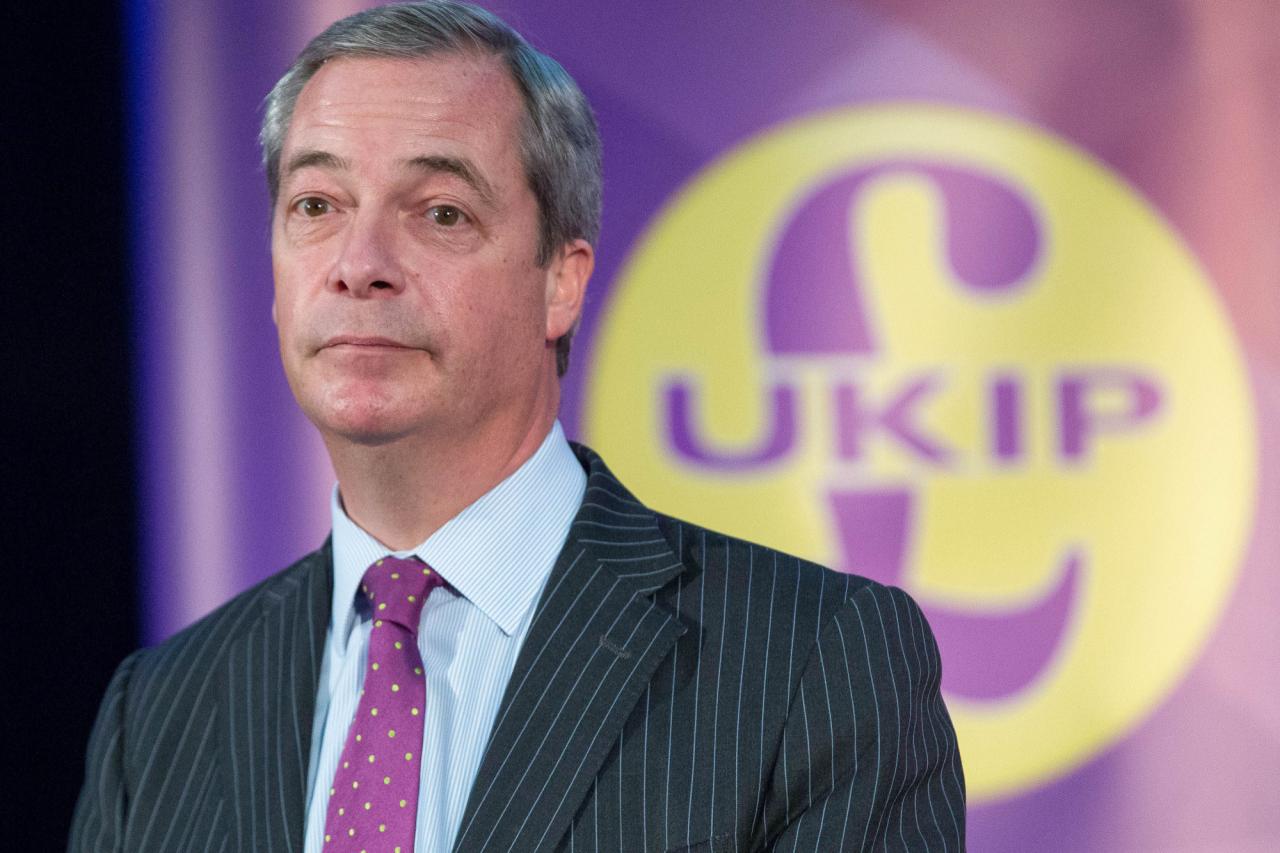
The “Farage Ratchet,” a term describing the seemingly irreversible shift towards populist and nationalist politics exemplified by Nigel Farage’s career, isn’t unique to the UK. Similar trends, driven by similar socio-economic anxieties and technological advancements, are observable across the globe, creating a complex and evolving international political landscape. Examining these parallels and divergences offers crucial insights into the potential spread and impact of this phenomenon.The rise of populist and nationalist movements globally shares common threads with the Farage Ratchet.
Economic inequality, perceived loss of national identity in the face of globalization, and the amplification of grievances through social media all contribute to a fertile ground for such movements. However, the specific manifestations and consequences vary considerably depending on the pre-existing political and social structures of each nation.
Comparative Analysis of Similar Political Trends
The success of populist leaders like Donald Trump in the US, Marine Le Pen in France, and Jair Bolsonaro in Brazil, showcases the international appeal of anti-establishment rhetoric. While their platforms differ in detail, they all exploit similar anxieties regarding immigration, economic insecurity, and the perceived failures of traditional political elites. However, the specific issues targeted and the effectiveness of their strategies are shaped by the unique cultural and historical contexts of their respective countries.
For instance, Trump’s focus on trade deficits resonated strongly with American manufacturing workers, while Bolsonaro’s emphasis on law and order appealed to Brazilians concerned about crime rates. These variations highlight the adaptive nature of the Farage Ratchet, its ability to morph and tailor its message to specific national circumstances.
Potential for International Spread of the Farage Ratchet
The ease with which populist narratives can spread through social media presents a significant risk for the global spread of the Farage Ratchet. Misinformation and divisive rhetoric can easily transcend national borders, creating a transnational echo chamber that amplifies extremist viewpoints and undermines democratic institutions. The increasing polarization of political discourse, evident in many countries, suggests a receptive audience for such narratives.
The example of Brexit itself serves as a potent case study, inspiring similar secessionist movements in other nations grappling with internal divisions and feelings of alienation from established political systems. The rise of far-right parties across Europe further underscores this potential for international contagion.
Global Implications of Continued Influence
The continued influence of the Farage Ratchet poses several significant global implications. The erosion of trust in democratic institutions, the rise of nationalism and protectionism, and the weakening of international cooperation are all potential consequences. A world increasingly fractured along nationalist lines could lead to increased international tensions, hindering efforts to address global challenges such as climate change, pandemics, and economic inequality.
Furthermore, the rise of populist leaders often coincides with a decline in human rights and democratic freedoms, posing a serious threat to global stability and human well-being. The undermining of international agreements and institutions, as witnessed in the US withdrawal from the Paris Agreement, demonstrates the potentially destabilizing impact of this trend.
Manifestations of the Farage Ratchet Across Cultures
The Farage Ratchet manifests differently across various cultural settings. In some countries, it might take the form of overtly nationalist movements focused on issues of national identity and immigration. In others, it might focus on economic grievances and resentment towards established elites. The specific issues that resonate most strongly with voters vary considerably depending on the prevailing socio-economic conditions and cultural norms.
For example, in countries with significant religious divides, the Farage Ratchet might exploit religious tensions to gain support. In countries with strong historical ties to colonialism, it might tap into lingering resentments and grievances against former colonial powers. The adaptability of this political strategy makes it a particularly resilient and pervasive force in the global political landscape.
Potential Mitigation Strategies
The Farage ratchet, characterized by the persistent influence of divisive rhetoric and populist appeals, presents a significant challenge to democratic discourse. Mitigating its negative effects requires a multi-pronged approach targeting both the supply and demand sides of this political phenomenon. This involves strengthening democratic institutions, promoting media literacy, and fostering a more inclusive and informed public sphere.Strategies for countering the influence of the Farage ratchet are not simple solutions, but rather a complex interplay of institutional reforms, educational initiatives, and societal shifts.
The feasibility of each strategy is dependent on political will, societal receptiveness, and the specific context in which it is implemented. Challenges range from entrenched political interests resisting change to the inherent difficulty of combating deeply held beliefs and prejudices.
Strengthening Fact-Checking and Media Literacy Initiatives, The return of the farage ratchet
Robust fact-checking initiatives are crucial in combating the spread of misinformation and disinformation, which often fuels the Farage ratchet. These initiatives should be independent, transparent, and readily accessible to the public. Furthermore, comprehensive media literacy programs should be integrated into educational curricula at all levels, equipping citizens with the critical thinking skills necessary to discern credible information from propaganda.
Successful examples include the work of organizations like PolitiFact and FactCheck.org, which actively debunk false claims and provide context to political narratives. These initiatives, however, face challenges such as the speed at which misinformation spreads online and the difficulty of reaching audiences who are already predisposed to believe certain narratives. Funding limitations and the potential for accusations of bias also pose significant obstacles.
Promoting Inclusive Political Discourse and Representation
The Farage ratchet thrives on feelings of exclusion and marginalization. Promoting inclusive political discourse and ensuring representative political systems can directly address this. This involves actively encouraging participation from diverse groups, fostering dialogue across ideological divides, and implementing electoral reforms that promote fairer representation. For example, proportional representation electoral systems can give voice to smaller parties and prevent the dominance of populist movements.
However, implementing such reforms often faces strong resistance from established political parties and can be complex to implement effectively. The success of such initiatives hinges on building trust and fostering a sense of shared ownership within the political system.
Enhancing the Role of Independent Regulatory Bodies
Independent regulatory bodies play a critical role in maintaining fair and balanced media landscapes. Strengthening their capacity to investigate and address instances of misinformation and hate speech is essential. This includes providing them with adequate resources and legal authority to enforce regulations effectively. However, ensuring the impartiality and effectiveness of these bodies while avoiding accusations of censorship or political bias remains a constant challenge.
The experience of countries like Germany, with its strict regulations on hate speech, demonstrates both the potential benefits and the complexities involved in balancing freedom of speech with the need to combat harmful rhetoric.
A Coordinated Plan to Counter the Farage Ratchet
A comprehensive plan requires a coordinated effort across various sectors. Phase 1 would focus on strengthening fact-checking and media literacy programs through increased funding and integration into educational curricula. Phase 2 would concentrate on promoting inclusive political discourse by supporting initiatives that foster dialogue and encourage participation from diverse groups. Phase 3 would involve enhancing the capacity of independent regulatory bodies to effectively address misinformation and hate speech.
This plan acknowledges the interconnectedness of these strategies and aims to create a synergistic effect, rather than addressing each element in isolation. The success of this plan, however, relies heavily on sustained political will and widespread societal engagement.
Visual Representation of the Farage Ratchet: The Return Of The Farage Ratchet
Visualizing the Farage Ratchet requires a dynamic representation that captures its cyclical and escalating nature. A static image wouldn’t fully do it justice, but a carefully designed graphic could effectively convey the key mechanisms. We need to show how seemingly small shifts in rhetoric and policy can lead to significant long-term consequences.The core of the image would be a central, rotating cogwheel, representing the political landscape.
This cogwheel would be metallic grey, signifying the inherent inertia and resistance to change within the system. The teeth of the cogwheel would be uneven in size and shape, reflecting the unpredictable and often chaotic nature of political discourse. As the cogwheel rotates, it interacts with several smaller, brightly colored gears.
Gear Interactions and Color Coding
These smaller gears represent different elements contributing to the Farage Ratchet: a fiery orange gear for populist rhetoric, a deep blue gear for established political institutions, a vibrant green gear for public opinion, and a muted purple gear for international relations. The interaction between these gears would be depicted to show how populist rhetoric (orange) initially engages with existing institutions (blue), but the resulting friction causes a shift in public opinion (green), potentially leading to further actions that impact international relations (purple).
Crucially, the rotation of the main cogwheel would be uneven, sometimes speeding up, sometimes slowing down, mirroring the unpredictable nature of the ratchet’s effect.
Narrative Depicted by the Visual
The narrative unfolds as the viewer observes the gears interacting. Initially, the orange gear (populist rhetoric) might seem small, but its interaction with the blue gear (institutions) causes a noticeable shift in the overall rotation. This shift then affects the green gear (public opinion), pushing it in a specific direction. This creates a feedback loop; the movement of the green gear reinforces the orange gear’s influence, leading to further changes in the blue gear (institutions) and, eventually, the purple gear (international relations).
The image would clearly demonstrate that even small initial actions can lead to significant, cascading effects over time. The uneven rotation of the central cogwheel highlights the unpredictability and non-linear nature of the process. The visual would avoid a simplistic linear progression, instead emphasizing the cyclical and reinforcing nature of the ratchet effect.
Communicating the Concept to a Wider Audience
This visual, accompanied by a concise explanation, could be highly effective in communicating the complex dynamics of the Farage Ratchet to a wider audience. The use of color and simple shapes makes the image easily understandable, even for those unfamiliar with political science. It avoids jargon and uses visual metaphors to make the abstract concept of the ratchet more concrete and relatable.
The image could be used in presentations, articles, and social media posts to increase awareness and facilitate discussions about the implications of populist rhetoric and its impact on political systems. It provides a powerful, memorable visual shorthand for a complex political phenomenon.
The return of the Farage ratchet isn’t just a political blip; it’s a stark warning about the fragility of democratic institutions and the power of divisive rhetoric. Understanding its mechanics, its impact, and the potential countermeasures is vital. While the challenge is significant, the hope lies in informed citizenry and proactive strategies to push back against the forces that seek to dismantle constructive dialogue.
The fight for a more balanced and inclusive political landscape requires constant vigilance and a commitment to critical thinking – let’s keep the conversation going.

